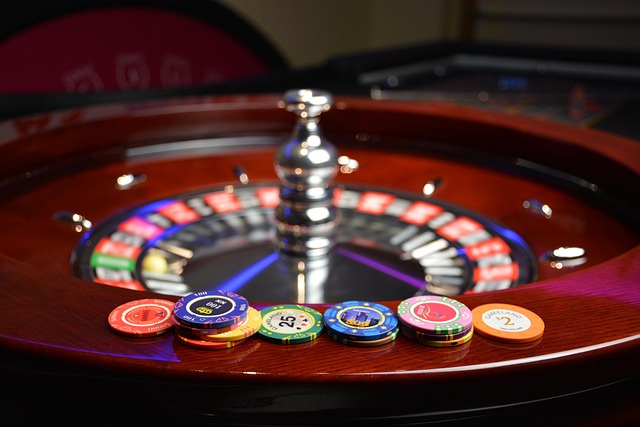
Roulette, one of the oldest casino games, has a rich history dating back several centuries. Originating in France during the 18th century, it quickly spread across Europe and later to America, becoming a symbol of casino glamour and excitement. Initially developed as an experiment in probability, roulette has undergone various modifications over the years, including the introduction of the double zero (00) in American roulette, significantly increasing the house edge.
Origins and Evolution of Roulette
Roulette was conceived as a combination of several older games involving a wheel, including the English game Roly-Poly and the Italian game Hoca. The French word “roulette” means “little wheel,” highlighting the central element of the game. The first modern version of roulette appeared in Paris in 1796, where it quickly gained popularity among the aristocracy.
How Roulette Became Popular Worldwide
Roulette’s global popularity can be attributed to its simplicity and thrilling gameplay. With the advent of online casinos, roulette became accessible to players worldwide, allowing everyone to enjoy the game without visiting a traditional casino. Today, roulette remains one of the most iconic casino games, symbolizing luck and chance with its mesmerizing red-black-green wheel spun by millions of players.
Basic Rules of Roulette
Roulette is a straightforward game where the goal is to predict where the ball will land on the roulette wheel. Players place their bets on the roulette table, which reflects the numbers and colors present on the wheel. Once the bets are placed, the croupier spins the wheel and releases the ball in the opposite direction. The winning number is determined by where the ball finally stops.
Layout of the Roulette Table and Wheel
The roulette wheel consists of a series of alternating red and black numbers, with the addition of green slots for the zero (0) and, in the American version, a double zero (00). The roulette table mirrors this layout and offers various betting options, including single numbers, groups of numbers, colors, even or odd numbers, and high or low numbers.
Understanding the Table Layout and Wheel Function
- Numbers: Marked from 1 to 36, arranged randomly but balanced between even and odd, red and black.
- Zero: In European and French versions, there is a single green zero; American roulette includes an additional double zero, increasing the house edge.
- Outside Bets: Offer higher chances of winning but lower payouts, including color bets, even/odd, and high/low bets.
- Inside Bets: Players can place chips directly on numbers, between numbers for split bets, or at the intersection of four numbers for corner bets.
The roulette table and wheel are designed to offer a variety of betting options, allowing players to apply different strategies or simply enjoy the game with varying levels of risk.
Types of Bets in Roulette
Roulette offers a range of bet types, providing players with multiple ways to engage in the game. These bets are categorized as inside and outside bets, each with its own set of options and odds. Understanding these bets is key to maximizing the gaming experience and potential winnings in roulette.
Inside and Outside Bets
Inside bets involve wagering on individual numbers or small groups of numbers on the table. These bets offer higher payouts but lower probabilities of winning. Outside bets, on the other hand, cover larger groups of numbers, offering a higher chance of winning but with lower payouts. Examples of outside bets include color bets (red or black), even or odd numbers, and high (19-36) or low (1-18) numbers.
Description and Odds for Each Type of Bet
Inside Bets Include:
- Straight (single number): The highest-risk bet with a 35:1 payout.
- Split (two adjacent numbers): Placing chips on the line between two numbers, with a 17:1 payout.
- Street (three numbers in a row): A chip placed at the end of a row, covering three numbers, with an 11:1 payout.
- Corner (four numbers): A chip placed at the intersection of four numbers, with an 8:1 payout.
Outside Bets Include:
- Red/Black: Betting on the color outcome, with a 1:1 payout.
- Even/Odd: Betting on whether the winning number will be even or odd, also with a 1:1 payout.
- High/Low: Choosing whether the winning number will be high (19-36) or low (1-18), with a 1:1 payout.
These betting options allow players to choose between low-risk bets with smaller payouts or higher-risk bets with potentially larger rewards. Understanding and applying the right betting strategies can significantly increase winning chances.
Roulette Game Strategies
Understanding and using strategies in roulette can greatly enhance the player experience and winning potential. While roulette is ultimately a game of chance, certain strategies can help players manage their bets and possibly improve their chances of making a profit.
Popular Roulette Strategies
Some of the most well-known roulette strategies include Martingale, Fibonacci, D’Alembert, and Reverse Martingale (Paroli). The Martingale strategy involves doubling the bet after each loss to recover previous losses and make a profit after the first win. The Fibonacci strategy follows the famous numerical sequence to determine bet sizes, while the D’Alembert strategy involves increasing the bet by a fixed amount after a loss and decreasing it after a win.
How and When to Apply Certain Strategies
Strategies like Martingale or Fibonacci work best on bets with approximately 50% chances of winning, such as red/black or even/odd bets. These strategies require disciplined tracking and strict bankroll management to avoid substantial losses. Properly applying these strategies can help minimize losses and potentially increase winnings, but players should be aware of the risks and prepared for long losing streaks.
Conclusion
Roulette is an exciting and dynamic game that offers various betting options and strategies to enhance winning chances. From basic rules and table layout to different types of bets and strategic approaches, players can enjoy this casino classic in multiple ways. Whether they prefer safer outside bets or riskier inside bets, roulette provides an engaging experience with every spin of the wheel.






